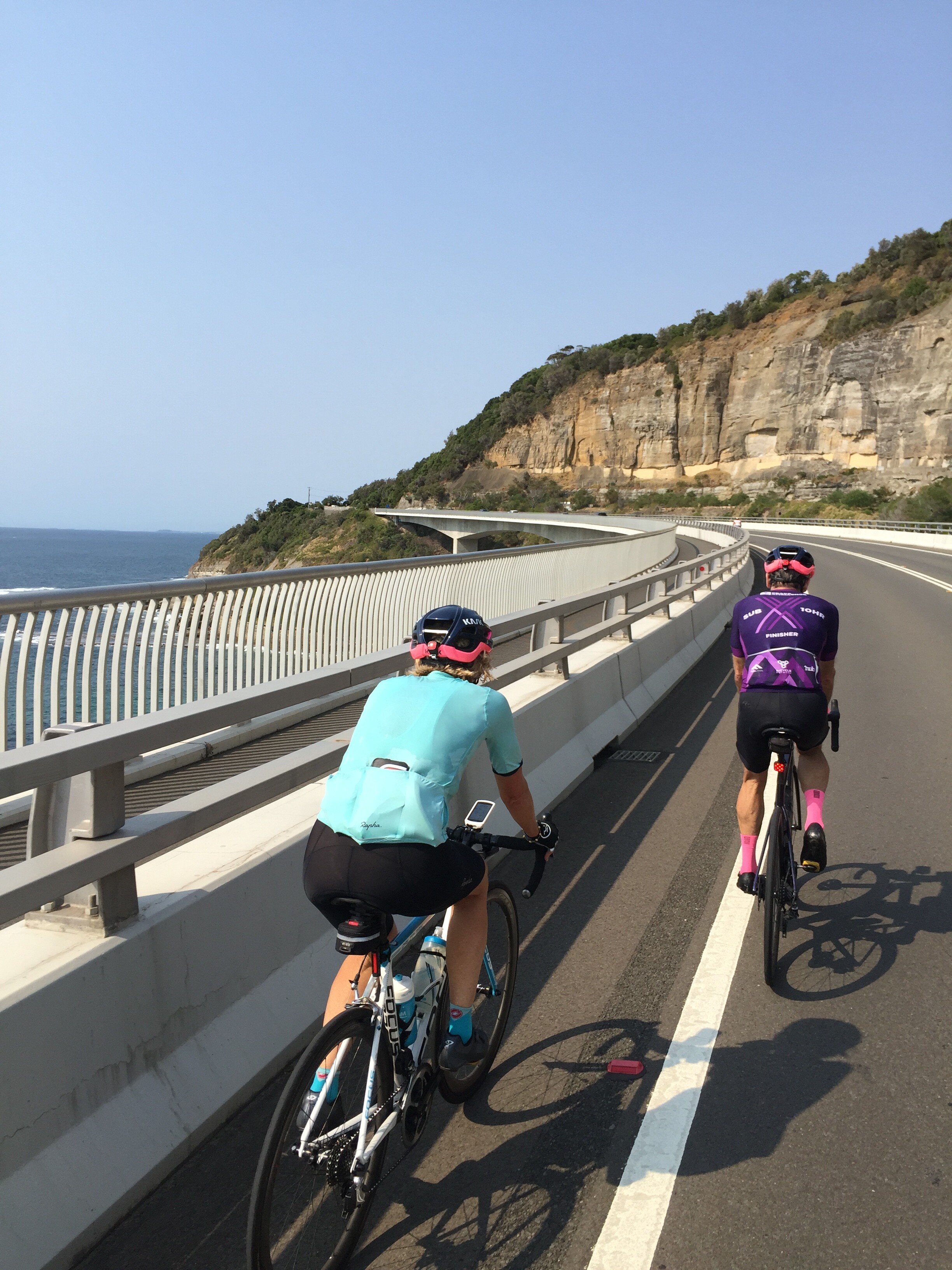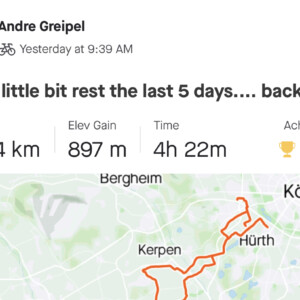Faster & Fitter at 50? Karen Forman asks the question Is it possible to ride faster once you hit the half century or, even take up the sport when you reach the big five-zero?
Specifically, is it possible to get faster, go further and ride harder over the age of 50? How hard can you train? Can you win races? Can you train to go faster than you could before that big birthday bash signified the beginning of “middle age’’? Can you start cycling at 50 and be competitive?
The answer to all the above, according to the riders, coach and sports scientist interviewed for this article, is a resounding “yes’’.
In fact, it appears there are a whole of rewards for those who keep riding into or take up cycling in their fifties.
LET’S TAKE A LOOK AT THE SCIENCE
Exercise physiologist, former sports scientist, former research fellow at the AIS, ACT Academy of Sport and keen recreational mountain biker in her 50s, Kate Greenwood, says anyone can improve at any age.
Her advice for over 50s in a nutshell: “Plenty of recovery, don’t overdo the intensity, hold your body together with specific muscle strengthening and keep an eye on weird heart rates.’’
“If you’ve been training all this time, you may not get any faster as speed and endurance tend to go down with age,’’ she says, “but science tells us our slow twitch (endurance) muscle fibres last longer than fast twitch (sprint) muscle fibres.
“That is where other components come in that might make a difference – for example, older riders may have more time to train than when they were younger and certainly training methods have changed and improved and are much more accessible to the club level rider.’’
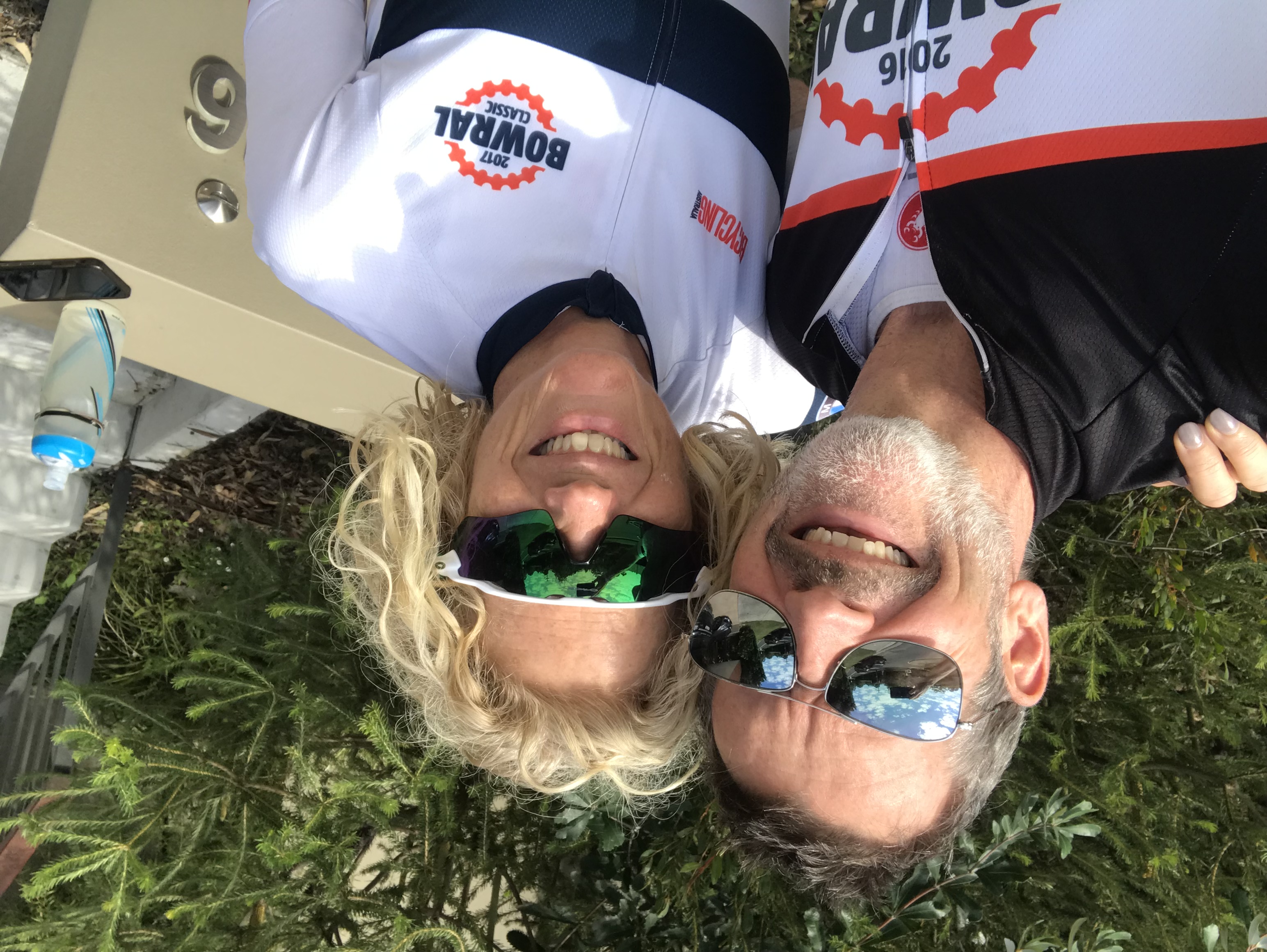
Kate says older athletes do tend to need more recovery time as older athletes which is fine for riders who may have retired and have empty nests, but more difficult for riders still working and some with second families.
“I think, the thing with masters, particularly cyclists who tend to do a lot of hours, is that they probably don’t consider fitting that recovery time around full-time work, family, etc, in terms of looking at overall training load, which adds to the overall stress as far as overall training.
“Recreational athletes and triathletes tend to overtrain…that is a reason why professional athletes don’t work full time. Beware, the committed and over-committed. Masters are often overcommitted. Looking at a rider’s training load and it might be reasonable, but add a high- powered job, looking after elderly parents, kids doing year 12…in my experience they love to overdo it.
“The key is training smart and keeping an eye on your health. Masters need to be aware of some of our muscle imbalances, arthritis, chronic health conditions, – some of us are literally holding our bodies together – and it is a good
idea to add strength training like pilates, yoga, home strength programs, resistance training,
to your program.
OVER 50s HEALTH
Kate says unfortunately chronic health conditions, through no fault of our own, start to effect us as we get older. There does seem to be some evidence that some tacky arrhythmia’s of the heart tend to be more abnormal as we get older and it is important to keep an eye on your health.
“If your heart rate is suddenly jumping up high and not coming back to normal, you need to get checked out. Atribual fibrillation can turn up in people who are otherwise really fit,” she said.
“However, the risks of not training or exercising are still far greater than that of heart arhhymia.’’
STARTING OUT
Kate says people who have been riding their whole lives often keep doing what they have been doing in training and even ramping it up as their time becomes more free. But for newbies, it is a different story.
“Keep in mind to ramp it up slowly as you won’t respond as quickly. Get advice from a qualified coach and remember you are not 21. You can still be really fit but you need to take it slowly, get a good base.’’
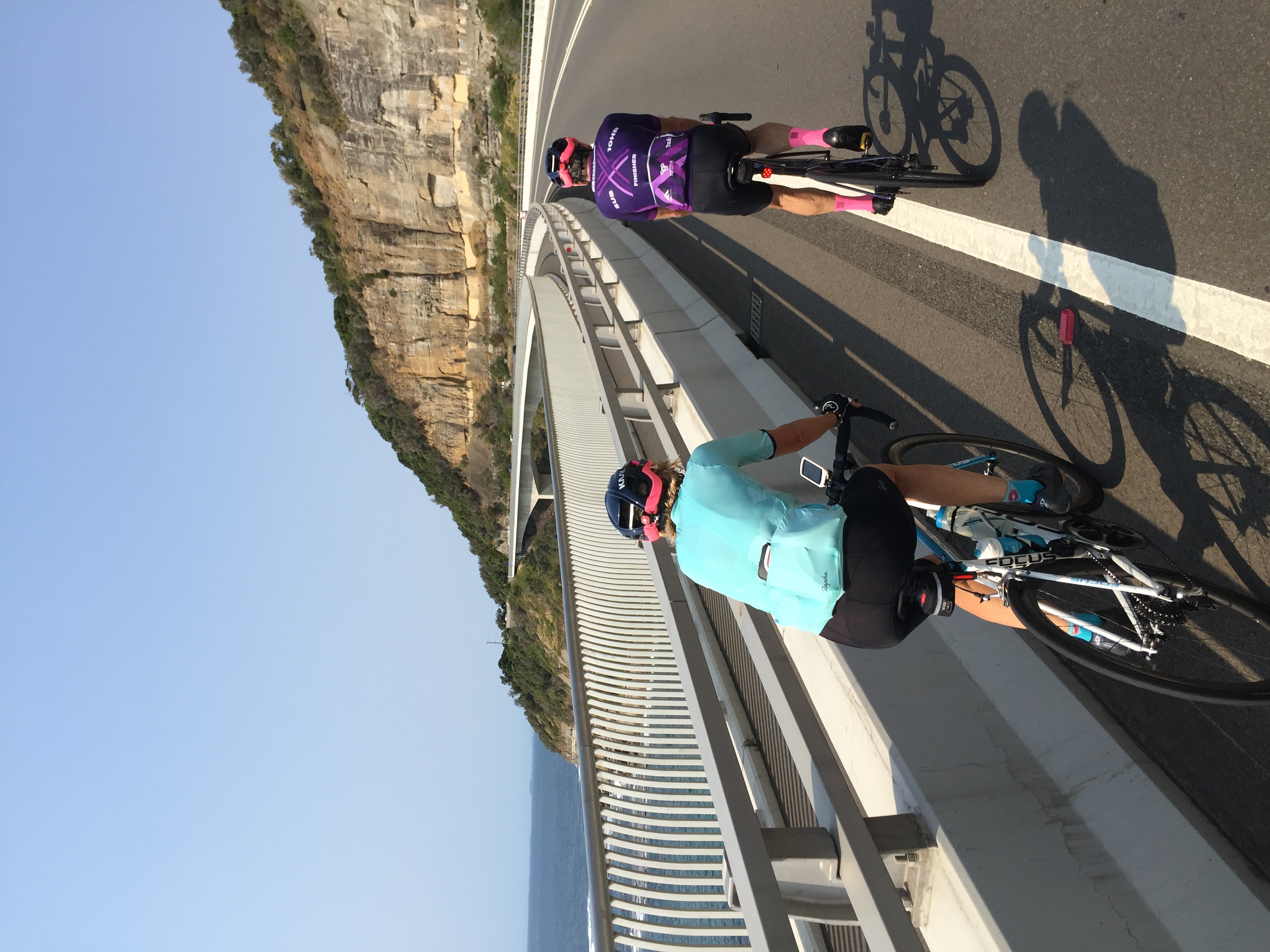
BENEFITS
Kate says that the benefits of sport over 50 include the fact that there is not better medicine that can manage and treat chronic health conditions than exercise.
“Mental health is a huge benefit as well as the ones people know about like reducing heart disease, type two diabetes, many cancers – a lot of people don’t realise lack of exercise contributes to breast, bowel and prostate. Any form of arthritis, cycling particularly good for people with osteoarthritis who cant run but still get a good workout from riding a bike.
The social benefits really important, riding
in bunches.
“One thing cycling probably isn’t so good for is osteoporosis – you need a high impact activity like jumping, strength training prescribed by a training professional, because cycling is non impact, doesn’t hurt to do something else as well.
“A lecturer in the 80s used to say we don’t play to get fit we get fit to play.’’
RIDER 1: DAVID GRIMES
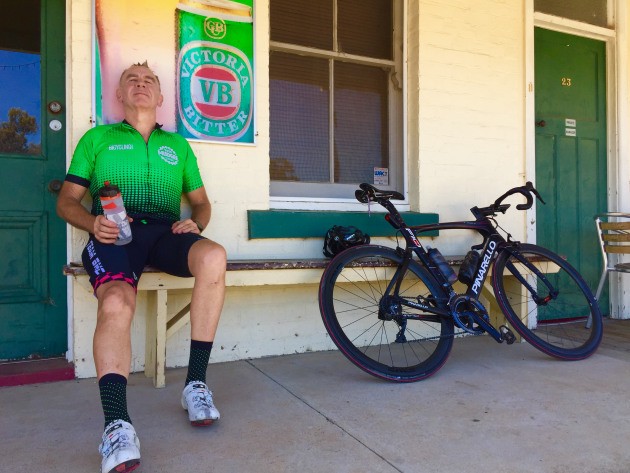
David Grimes works in financial markets and cycling is both his hobby and his sport. The 57 year old from Sydney rides with Team BMC (Beers Mates and Cycling), a group he says is “mostly middle aged men, close to 50 and over, who head out regularly for exercise and a good chin wag.’’
He has been around and done all the Bicycling Australia classics, with fellow Team BMC member (and publisher of this magazine) James Yaffa.
“Typically I am riding two mornings a week and one or two days on the weekends, riding 50-60km in the morning at 5am. It is mostly gran fondo cycling events we do,” he said.
David has been into cycling since university days. He started with triathlons, then three ironmans including Hawaii, and was in the Australian age group team in Manchester. He became more focused on cycling because of young kids and less time to train. Now that the children are both out of school and at university, he says he is “pretty serious’’ about his riding.
“I had to take time out for spinal surgery four years ago, so had to deal with it,” he said. “I probably had the least amount of pain when on the bike.’’
David covered 16,000km last year, his biggest year by far (beating 12k the previous year). He describes himself as stayer, happy once going over 80 or 90kmh. “If I do 120 or 160 km’s I am happy,” he said.
“I think you can train as hard at this age. I do get more muscular soreness, but just put it behind you and keep going. Recovery is ok. A 60k ride is not hard to get over, it doesn’t take a lot out of the body. I don’t know if I feel any better or worse than younger people,” he said.
“A large reason for all of us cycling is the social aspects, that brings the social, mental and physical relief of getting out and doing exercise. Moving forward, my goal to stay upright. I’ve had a couple of spills in my time so riding safe is a key thing. I am not a fast rider in my age group, I just like to get the best out of myself. If I am going to enter an event I want to do it as fast and best as I can.”
RIDER 2: BRIAN WHELAN
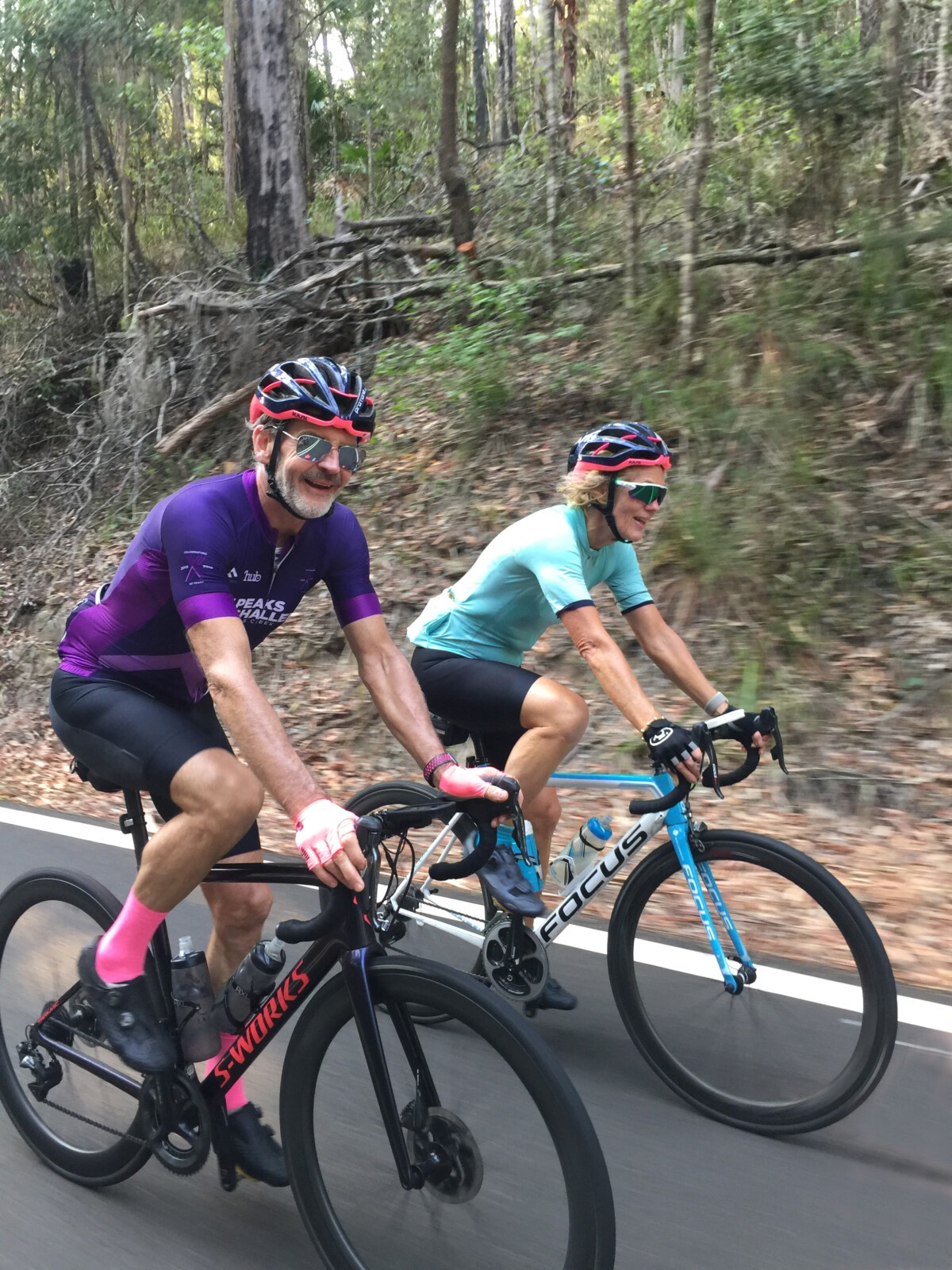
Brian Whelan says there is no question that the positive mental mindset you get from being active and then having a sport you can share with a group of like minded and fun to be with people is enormously beneficial.
“There’s also the positive aspect that you know you will be up early on Saturday morning to go for bike ride, helps you avoid the over indulging aspect. During the week you are already watching the weather hoping for a good forecast for the weekend and looking forward to it,’’ he says.
Brian is an engineer and turned 60 in February. He started road riding at age 50.
“My wife bought me a road bike as my 50th present,” he said. “In my late 40s I started mountain bike riding then transitioned to road riding. I have given that away.. I love the road cycling more and it is convenient to be about to ride straight out the front door. It is also less prone to the breaks and bruises you get from mountain riding.’’
Like David, is a member of the BMC social cycling group and enjoys sportif classics. This year he registered for Clare in April, Mudgee in May (both events sadly postponed due to Coronavirus) and Bowral in October.
“I generally ride two weekdays and a couple of weekend rides, ranging from 200-300km a week when I am riding regularly.’’
The best thing, Brian says, is that he managed to convert wife Gabi to road cycling as well and she often joins the crew on weekend rides.
He says in getting older his time is freeing up.
“Our three kids are old enough to fend for themselves,” he said. “I have more time to devote to riding. Also the involvement and enjoyment I get out of riding with a really great bunch of people, is very motivating. I am still cracking PR’s, I am still improving.”
Brian said he takes recovery seriously, and is mindful about ensuring rest days are included in his program.
RIDER 3: GABI WHELAN
Brian’s wife Gabi was 58 when she started cycling a year ago after being “invited’’ by her husband to climb aboard a bike.
“He loved cycling so much and kept saying, `when are you going to start cycling, there are so many things you could do’, so I did,’’ she says.
“I have always done a lot of sport, I had been doing athletics but it was not very good for my body, so needed something new and cycling ticks all the boxes.”
Gabi has done the 120km Bowral Classic and rode the B2B in March.
“I want to get faster and beat my husband up the hills,” she said. “It would be nice to get qualified for the UCI world masters – maybe next year.“
Gabi said age was not relevant. “I am one of the oldest people I ride with and I am not at the back of the pack,” she said. “In some ways it makes you faster and stronger mentally. I am looking forward to retiring and having even more time to cycle. A friend of mine just has done that and she is spending more time on the bike.’’
She said she would absolutely recommend cycling to other women.“ It is such a nice way to start the day, go out with a group of friends, come back and have coffee together. Social, endorphins – it’s great to go into work after you’ve had that time.”
A COACH’S PERSPECTIVE
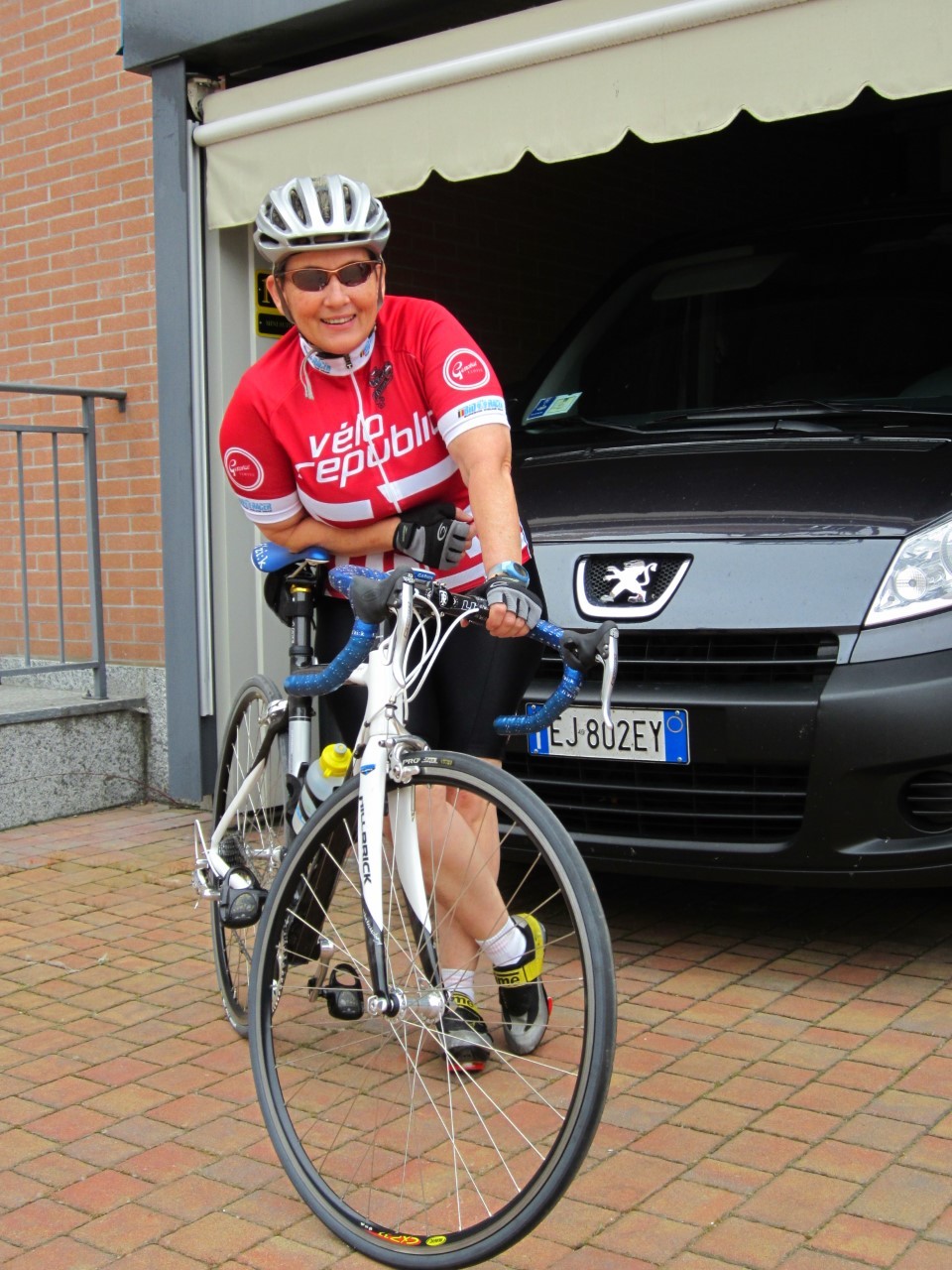
Cycling Australia Level Two Road and Track Coach Sian Mulholland says the number of over 50s in cycling tends to ebb and flow. “The thing I have noticed that is particular relevant to the faster at 50 is you get an age group and that age group will continue and take their speed with them.
“They will start off racing as 40 year olds and move through to being 45 year olds, then 50 year olds and they will be 50 year olds and that group will be the quickest 50 year olds around. That stays throughout the age group. The 50 -55s will be quicker than the 40-45s. You will get a group of women who are the quickest around as get as older.’’
Sian, who has a coaching business Sian Mullholland Cycling Coaching and also coaches for Vikings Cycling Club (ACT) programs, says she believes from a coaching perspective people are getting smarter.
“Training science has improved, but I also think we better understand what people are capable of. It always used to be that once you got beyond a certain age you had to be super careful. You weren’t allowed to do this as you might have heart attack,etc.
“Attitudes are changed, we have a better understanding of the science. We know that physiologically it is harder to maintain strength. Someone said the other day they were told you can’t build strength once you get over 50. Not true. The latest research shows strength training is important in terms of falls avoidances.
“We always thought light activity would keep older people more healthy. With the benefit of the science behind us, older people are actually doing a whole lot more than what they thought they could. I don’t think its about whether you can get fitter or faster over 50, it’s how well we apply the science that we know about.’’
Sian says she took someone who was 45, on the track, from a high 13 flying 200 to a low 12 flying 200 and when she recorded that quickest time, it was the quickest 200 time any Australian masters woman had ever done, including Michelle Ferris.
…heart health is
an issue at any age so over 50s should do a health screen for pre-existing conditions…
“Older cyclists probably have more time available, probably have the inclination and the money to buy the latest equipment. If I go out today and get on my track bike, the bike alone is probably worth, at least a second over a flying 200 in time, because it is current technology, whereas my old track bike, as much as cutting edge at the time, would be slower.
“We also know more about nutrition now. We know how to eat better now, that will have a bearing.
“You have more people involved, so get better competition. Harry Worthington raced well into his 80s, starting in the 1920s and he and his wife used to go all over the place and race, including the masters games and all he had to do was ride around and get a medal. He always wanted to go as well as he could, but in his situation he didn’t really have any reason to go any quicker as had no one to race against. So having a more inclusive cycling community means more people are getting into it.’’
ACCEPTANCE
Sian says another big improvement in recent years is that older people are accepted. “You go to the NSW championships and the sprint is taken out by masters riders,” she said. “What we teach in the courses is inclusive coaching.’’
PITFALLS
Sian says heart health is an issue at any age so over 50s should do a health screen for pre- existing conditions.They should start at a level consistent with training age rather than chronological age.
“Everyone is different and has different needs and abilities,” she said.
“Because of that I need to have a conversation and find out what they are capable of, what they have been doing. Any good coach is tailoring to the needs and wants of the individual. Older people’s capacity to take on load is every bit as good. Textbooks say give more recovery time for older athletes, but my view on that is that it may vary. All the stuff is based on the average person, who doesn’t exist. The old bell curve says this is representation of the population. We can’t say because a certain age they have to have that recovery time.’’
“Being a rider in 2020s is a great time, as can apply all the knowledge to your training and get the best out of yourself.’’
- French rider Jeanie Longo-Cuprelli won a 10th French time trial championship when she was 52 (2011)
- American Chris Horner was 41 when he won a stage of the Tour of Spain (2013)
- NSW rider Peter Milostic (Penrith) won the national men’s masters four time trial (2019) averaging 46.4kmh
- NSW rider Rosemary Hastings has consistently won national titles on the road and track in women’s masters five-nine (over 50-60s)
- Frenchman Robert Marchand rode 100km to celebrate his 100th birthday (on a velodrome, just to be safe)
- Reg Harris won the British sprint championship in the 1990s at 51.
